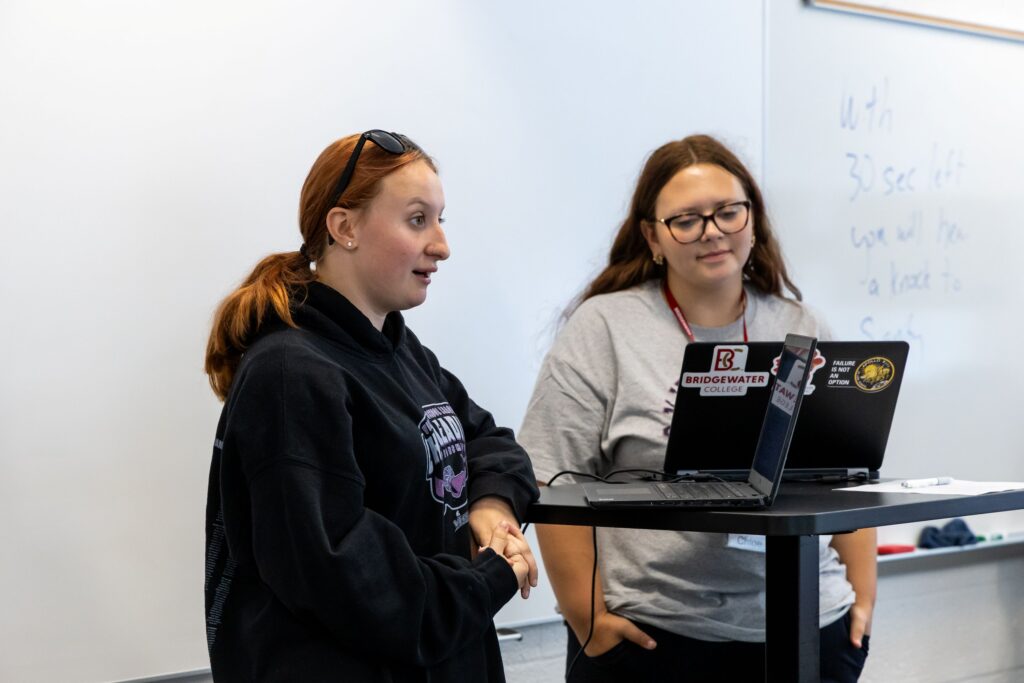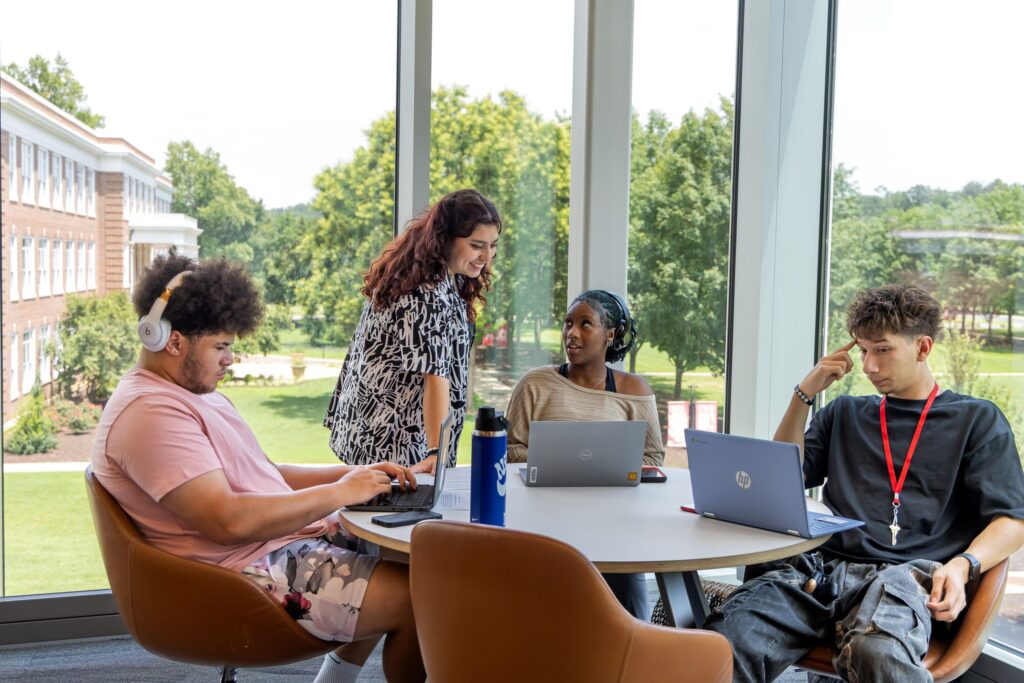Standing face-to-face in the front of a Bowman Hall classroom, divided by a podium holding their laptops, a pair of local high school students debate whether the U.S. government should ban TikTok or not.
“Platforms like TikTok have been used for spreading misinformation,” says Salma Almassad, a rising senior at Rocktown High School in Harrisonburg, Va., arguing in favor of the ban.
“No American is safe from misinformation on social media. The American dream is founded on the ideals of freedom,” replies Madeleine Fuller, a rising senior at Western Albemarle High School in Crozet, Va.
The students are participating in the Future Scholars Institute, a two-week residential program that allows 26 high school students to live and learn like college students for no cost. The program is led by Dr. Jeff Pierson, Professor of Communication Studies, and Prof. Ben Erickson, Senior Instructor of Communication Studies and Director of Community Engagement, and funded by a grant from the New York-based Teagle Foundation.
“I saw the Teagle Foundation grant and went for it,” Pierson said. “I thought this opportunity would be great for the local community and for the participants to gain confidence. Our college students who serve as counselors also get leadership experience.”
While at Bridgewater, the high school students are enrolled in an interdisciplinary course entitled “Individual Freedom and the Public Good.” The course earns the students two college credits and is designed to challenge them to explore the topics of freedom, democracy and government. They are tasked with reading complex materials, engaging in discussions and debates, and presenting their ideas through writing and classroom discussion.
Much like in college, the students have a schedule for each day. They have discussions, lectures and case studies before lunch, and in the afternoon, they have workshops and time to catch up on assignments and readings.
“Coming here, I’ve gained experience on what it’s like to be in college, what the workload is like and how to manage my time effectively,” says participant Alyssa Robinson, a rising senior at Strasburg (Va.) High School.

Halfway through the program, students use what they’ve learned so far in what is termed The Great Debates. Participants choose to debate on one of two controversial topics: whether TikTok should be banned or if there should be censorship of books in grades K through 12. They participate in two debates, first arguing in support, and then arguing against.
The students are given three days to familiarize themselves with the topic, gather information and create their arguments for each side. Each debate has a 20-minute time limit and is split up into four sections: opening statements, main arguments, rebuttal and then closing statements.
Although a winner is not chosen in the debates, students take away valuable lessons from debating against each other. It requires them to think quickly on their feet and ensures they have enough knowledge to be able to respond to their opponent’s rebuttal.
Outside of the class work, program participants take two trips to Washington D.C., attend a play at the Blackfriars Playhouse in Staunton, Va., and explore the town of Bridgewater.
To finish up the program, the students submit a final paper and give a presentation on the key things that they learned, along with a ceremony that includes their family and guests.
“This program has taught me to speak up for what I believe in and to not shy away from conflict,” says Chloe Kibler, a rising junior from Page County (Va.) High School. “I learned how to come together as one strong community.”
Applications for the 2026 Future Scholars Institute will open December 1, 2025.
-Gracie Moyers
8/6/2025


